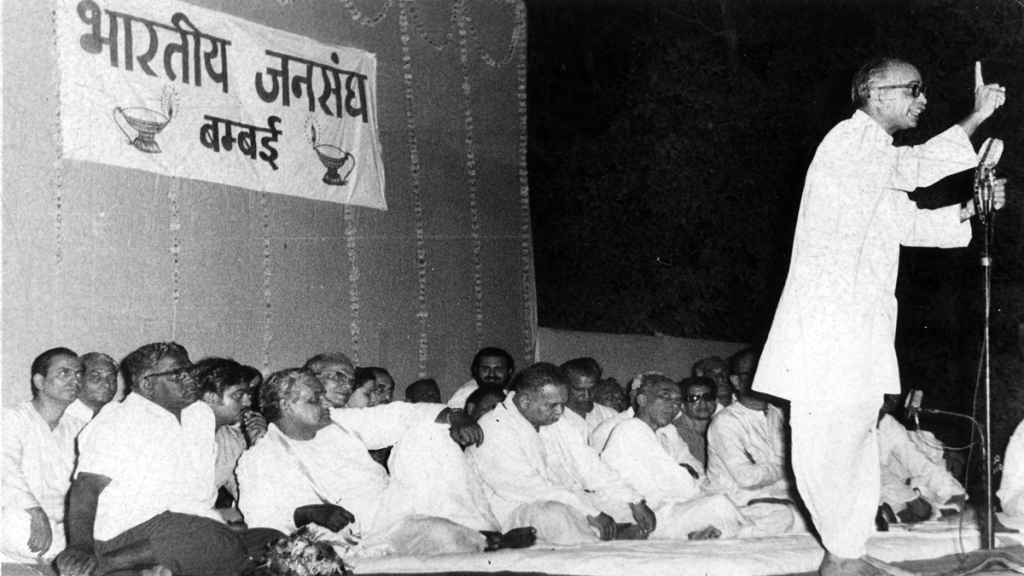The Uttarakhand Assembly on Wednesday passed the Uniform Civil Code (UCC), Uttarakhand, Bill 2024, following a two-day discussion, becoming the first state in the country to implement the UCC, which has been a long-standing election agenda of the saffron party, right from its Jana Sangh days.
The Bill, which seeks to “govern and regulate laws related to marriage and divorce, successions, live-in relationships, and matters related thereto”, will now be sent to President Droupadi Murmu for her assent following which it will become a law. However, the UCC will not apply to tribal communities in Uttarakhand.
Addressing the media following the passage of the Bill, BJP leader and Uttarakhand Chief Minister Pushkar Singh Dhami said, “Today is a special day, as the long-awaited Bill was passed in the Vidhan Sabha of Devbhoomi.”
BJP’s relation with UCC from Jan Sangh days
The matter of UCC was endorsed as the saffron party’s guiding principles and core policies on October 21, 1951, when around 200 delegates assembled in Delhi, where the Bharatiya Jana Sangh (BJS), the predecessor of the BJP was born.
The BJS’ Lok Sabha manifesto of 1962 didn’t mention the UCC. However, it found a clear mention in the BJS’s 1967 manifesto, where it promised citizens that it would enact UCC if voted to power, and would bring “uniform law for marriage, succession and adoption for all citizens”.
After the fall of the Janata Party government in 1980, the BJS was reconstituted as the BJP, nearly four months after the general elections that year.
Around the mid-eighties, struggling for a foothold in national politics, LK Advani, former BJP national president, set the party’s focus on three main agendas – UCC, abrogation of Article 370 and the construction of the Ram Temple in Ayodhya.
Shah Bano case and UCC
Following the Shah Bano maintenance case of 1985, where the Supreme Court upheld the right to alimony in the case, the BJP, and its ideological fountainhead the Rashtriya Swayamsevak Sangh (RSS), harped on the matter, and raised their demand for the UCC.
However, a year later, the Rajiv Gandhi-led Congress government overturned the Supreme Court judgment and passed the Muslim Women (Protection of Rights on Divorce) Act, 1986.
The BJP then added the UCC to its manifesto in the elections that were scheduled in 1989. The matter made its way to the subsequent election manifestos of 1996 and 1998, where the UCC was mentioned as an agenda for “Nari Shakti”. The party promised to give women property rights, women’s right to adopt, and end polygamy, among others.
The UCC was also a part of the 2004 election manifesto. After being voted out of power in 2004, the BJP focused on the UCC in the subsequent election of 2009.
The manifesto of the BJP in 2009 said, “Article 44 of the Constitution of India lists Uniform Civil Code as one of the Directive Principles of State Policy. There cannot be real gender equality till such time India adopts a Uniform Civil Code which protects the rights of all women. The BJP, as a first step towards this constitutionally mandated direction, will set up a Commission to draft a Uniform Civil Code, drawing upon the best traditions and harmonising them with the modern times.”
In 2009, during the National Executive meet of the party, the then BJP president Rajnath Singh said, “This time in our election manifesto we reiterated, our commitment for building a grand temple on the Shri Ram Jananbhoomi, our clear views for abrogating Article 370 and our appeal for implementing the Uniform Civil Code. Even today we are firm on these issues because we believe that they are the core issues of the unity and integrity of the country.”
In the 2014 and 2019 elections, the implementation of the UCC found mention in the election manifestos.
On UCC, the 2014 and 2019 election manifestos of BJP said, “Article 44 of the Constitution of India lists Uniform Civil Code as one of the Directive Principles of State Policy. BJP believes that there cannot be gender equality till such time India adopts a Uniform Civil Code, which protects the rights of all women, and the BJP reiterates its stand to draft a Uniform Civil Code, drawing upon the best traditions and harmonizing them with the modern times.”
With the other two core agendas of the BJP – stripping Kashmir of its autonomy and the construction of the Ram Mandir – being fulfilled under the leadership of Prime Minister Narendra Modi, the UCC awaits taking centrestage in national politics. Several BJP-led states, however, have started the process of UCC, including Assam and Gujarat.
In June last year, the Law Commission of India announced its decision to examine a pan-India Uniform Civil Code after the issue was referred to it by the Centre. Suggestions from various stakeholders, including public and religious organisations, were sought and consultations were held. As per the government, the Law panel is undertaking fresh consultations on the matter, and its report on the feasibility of the law being implemented is awaited.


